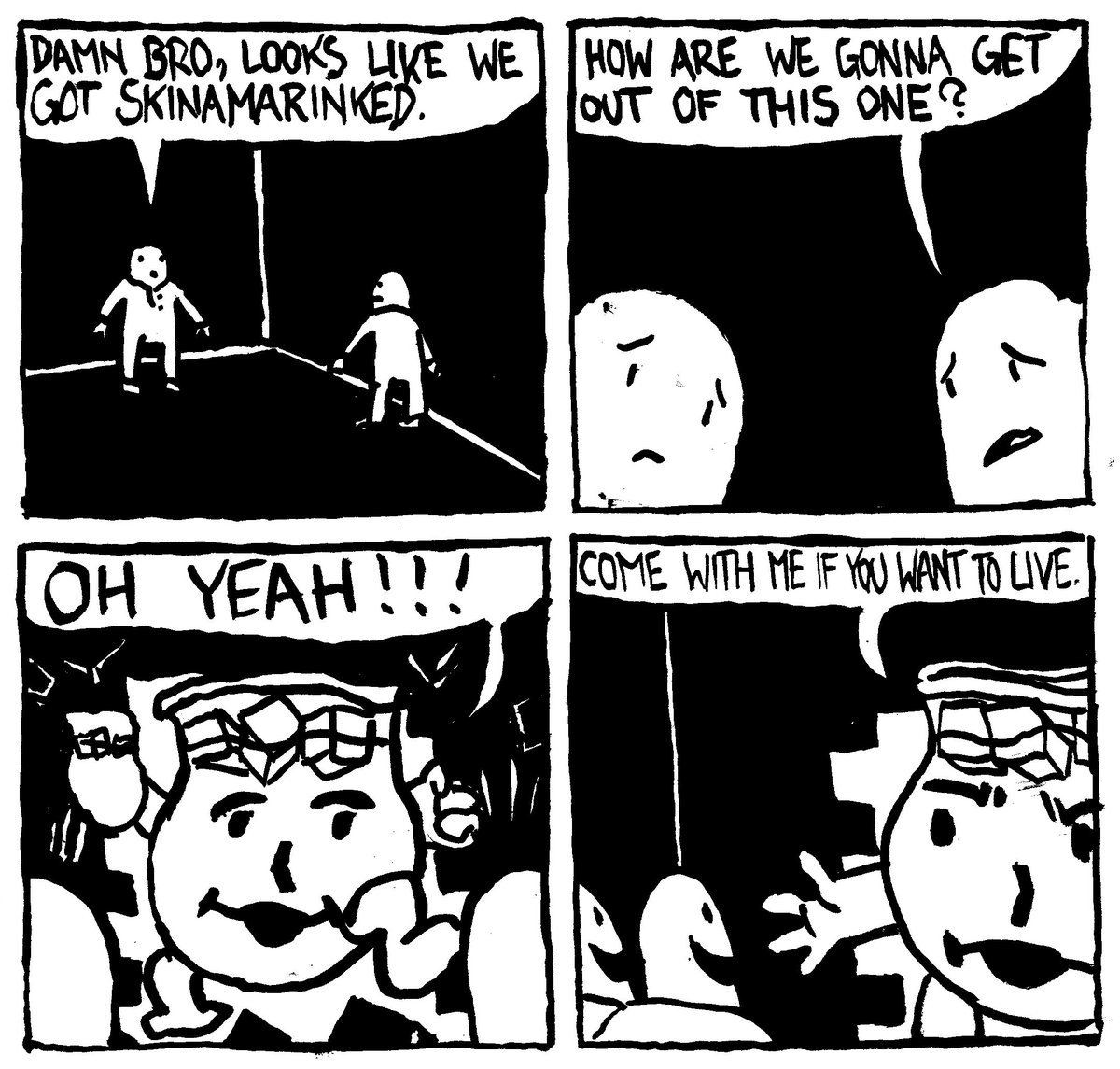The Ultimate Guide To Jamaican Slang For Bros And Friends
Wondering what "jamaicanlang for friend or bro" is in Jamaican Patois?
Jamaican Patois, also known as Jamaican Creole, is a language spoken by Jamaicans. "Jamaicanlang for friend or bro" is a way to address a male friend or acquaintance in Jamaican Patois. It can be used in both formal and informal settings.
There are many different words and phrases that can be used to address a male friend or acquaintance in Jamaican Patois. Some of the most common include:
- Mp4moviez Com Your Ultimate Guide To Streaming Movies Online
- Movierulz Telugu 2024 Your Ultimate Guide To The Latest Telugu Movie Scene
- Bredren
- Yardie
- Fambily
- Boss
- Don
The word "bredren" is the most common way to address a male friend or acquaintance in Jamaican Patois. It is a term of endearment that means "brother" or "friend."
The word "yardie" is another common way to address a male friend or acquaintance in Jamaican Patois. It is a term that is used to refer to someone who is from Jamaica.
The word "fambily" is a term that is used to refer to a close friend or group of friends. It is a term that is often used to describe a group of people who are like family to each other.
- Would Squid Game Be Legal Exploring The Reality Behind The Global Phenomenon
- Movierulz Telugu Your Ultimate Guide To Telugu Movies In 2023
The word "boss" is a term that is used to address someone who is in a position of authority. It can also be used to address a friend or acquaintance who is older or more experienced than you.
The word "don" is a term that is used to address someone who is respected and admired. It can be used to address a friend or acquaintance who is older or more experienced than you, or someone who has achieved a high level of success.
jamaicanlang for friend or bro
Jamaican Patois, also known as Jamaican Creole, is a language spoken by Jamaicans. "Jamaicanlang for friend or bro" is a way to address a male friend or acquaintance in Jamaican Patois. It can be used in both formal and informal settings.
- Term of endearment: Jamaicanlang for friend or bro is often used as a term of endearment, similar to the English word "bro".
- Sign of respect: It can also be used as a sign of respect, especially when addressing an older or more experienced person.
- Sense of community: Using Jamaicanlang for friend or bro can create a sense of community and belonging.
- Cultural identity: It is an important part of Jamaican culture and identity.
- Non-verbal communication: Jamaicanlang for friend or bro can also be expressed through non-verbal communication, such as gestures and body language.
- Linguistic diversity: There are many different words and phrases that can be used as Jamaicanlang for friend or bro, reflecting the diversity of the Jamaican language.
- Historical significance: Jamaicanlang for friend or bro has a long history and has been used for centuries by Jamaicans.
In conclusion, Jamaicanlang for friend or bro is a multifaceted and important part of Jamaican culture and identity. It serves various functions, including expressing endearment, respect, and community. It is also a reflection of the linguistic diversity and historical significance of the Jamaican language.
Term of endearment
In Jamaican Patois, using language to express endearment is a common way to show affection and closeness between friends. The use of Jamaicanlang for friend or bro is similar to the English word "bro," as it conveys a sense of camaraderie and familiarity. This term of endearment is often used in informal settings and among peers.
- Conveyance of Affection: Jamaicanlang for friend or bro is used to express feelings of fondness and affection towards a friend. It implies a strong bond and a sense of brotherhood.
- Sense of Belonging: Using Jamaicanlang for friend or bro creates a sense of belonging and community among friends. It fosters a shared identity and reinforces the connection between individuals.
- Non-Verbal Communication: Jamaicanlang for friend or bro can also be expressed through non-verbal cues, such as gestures, facial expressions, and body language. These non-verbal cues complement the verbal expression and enhance the overall message of endearment.
- Cultural Context: The use of Jamaicanlang for friend or bro is deeply rooted in Jamaican culture and tradition. It reflects the values of respect, loyalty, and friendship that are prevalent in Jamaican society.
In conclusion, the use of Jamaicanlang for friend or bro as a term of endearment is a significant aspect of Jamaican Patois. It conveys affection, fosters a sense of belonging, and reflects the cultural values of Jamaica. This term of endearment is an integral part of Jamaican language and culture, and it plays a vital role in strengthening the bonds of friendship and community.
Sign of respect
In Jamaican culture, respect is highly valued, and language plays a crucial role in showing respect to elders and those who are more experienced. Using Jamaicanlang for friend or bro can be a way to acknowledge and honor the wisdom and experience of older individuals.
For example, a younger person might address an older person as "bredren" or "yardie" to show respect and deference. This usage reflects the Jamaican cultural value of respecting one's elders and recognizing their contributions to the community.
Furthermore, using Jamaicanlang for friend or bro can also be a sign of respect in professional settings. For instance, a junior colleague might address a senior colleague as "don" or "boss" to acknowledge their seniority and experience in the field.
In conclusion, the use of Jamaicanlang for friend or bro can serve as a sign of respect, particularly when addressing older or more experienced individuals. This usage reflects the cultural values of respect and deference that are deeply ingrained in Jamaican society.
Sense of community
In Jamaican culture, language is not just a means of communication but also a powerful tool for fostering a sense of community and belonging. The use of Jamaicanlang for friend or bro plays a vital role in creating and maintaining strong social bonds within Jamaican society.
- Shared identity: Jamaicanlang for friend or bro helps to create a shared identity among Jamaicans. By using these terms, Jamaicans signal their membership in the Jamaican community and their connection to Jamaican culture.
- Inclusion and belonging: Using Jamaicanlang for friend or bro promotes inclusivity and a sense of belonging. It allows individuals to feel connected to a wider community and to experience a sense of acceptance and support.
- Cultural preservation: The use of Jamaicanlang for friend or bro contributes to the preservation and transmission of Jamaican culture. By passing on these terms to younger generations, Jamaicans ensure the continuity of their cultural heritage.
- Community events: Jamaicanlang for friend or bro is often used in community events and gatherings. This usage helps to strengthen community ties and fosters a sense of togetherness and shared purpose.
In conclusion, the use of Jamaicanlang for friend or bro is deeply intertwined with the sense of community and belonging in Jamaican culture. It creates a shared identity, promotes inclusivity, preserves cultural heritage, and strengthens community bonds. Understanding this connection provides valuable insights into the social and cultural fabric of Jamaican society.
Cultural identity
The connection between "Cultural identity: It is an important part of Jamaican culture and identity" and "jamaicanlang for friend or bro" is deeply rooted in the history, traditions, and values of Jamaican society. Jamaicanlang for friend or bro is not merely a linguistic phenomenon but also a reflection of the unique cultural identity of the Jamaican people.
Firstly, Jamaicanlang for friend or bro serves as a marker of Jamaican cultural identity. The use of these terms distinguishes Jamaicans from other cultural groups and reinforces their sense of belonging to a shared community. By using Jamaicanlang for friend or bro, Jamaicans express their pride in their cultural heritage and their connection to the Jamaican nation.
Secondly, Jamaicanlang for friend or bro plays a vital role in transmitting cultural values and traditions. Through the use of these terms, Jamaicans pass on their cultural knowledge, beliefs, and practices to younger generations. For example, the term "bredren" embodies the Jamaican value of brotherhood and unity, while the term "yardie" reflects the Jamaican experience of resilience and self-reliance.
In conclusion, the connection between "Cultural identity: It is an important part of Jamaican culture and identity" and "jamaicanlang for friend or bro" is undeniable. Jamaicanlang for friend or bro is an integral part of Jamaican culture and identity, serving as a marker of cultural distinctiveness, a transmitter of cultural values, and a source of pride and belonging for the Jamaican people.
Non-verbal communication
Jamaicanlang for friend or bro extends beyond verbal communication and encompasses a rich repertoire of non-verbal cues, including gestures and body language. These non-verbal elements play a crucial role in conveying the intended message and enhancing the overall communicative experience.
One significant non-verbal cue is the use of hand gestures. Jamaicans often employ expressive hand movements to emphasize certain words or phrases. For example, the "come here" gesture, where the index finger beckons towards the speaker, is commonly used to indicate that someone should approach. Additionally, the "stop" gesture, where the palm is held up facing outwards, is a clear non-verbal signal to halt an action.
Body language is another important aspect of non-verbal communication in Jamaicanlang. The way Jamaicans stand, sit, or move their bodies can convey a range of emotions and attitudes. For instance, standing tall with shoulders back and making direct eye contact is generally perceived as a sign of confidence and assertiveness, while slouching or avoiding eye contact may indicate shyness or discomfort.
Understanding the non-verbal cues associated with Jamaicanlang for friend or bro is essential for effective communication. By paying attention to gestures and body language, individuals can gain a deeper insight into the intended meaning behind spoken words and avoid potential misunderstandings.
In conclusion, non-verbal communication plays a vital role in Jamaicanlang for friend or bro. Gestures and body language add depth and nuance to verbal expressions, allowing Jamaicans to convey emotions, emphasize messages, and establish connections more effectively. Recognizing and interpreting these non-verbal cues is crucial for building strong relationships and fostering a deeper understanding of Jamaican culture.
Linguistic diversity
The linguistic diversity of Jamaicanlang for friend or bro is a testament to the richness and complexity of the Jamaican language. The use of various words and phrases to address friends and acquaintances reflects the cultural and social nuances within Jamaican society.
- Regional variations
The Jamaican language exhibits regional variations, and the terms used for friend or bro may differ depending on the region. For example, in the eastern parish of Portland, the term "parden" is commonly used, while in the western parish of Westmoreland, "bredren" is more prevalent.
- Social context
The social context also influences the choice of Jamaicanlang for friend or bro. In formal settings, more respectful terms such as "mister" or "missis" may be used, while in informal settings, more casual terms like "youth" or "sista" are common.
- Age and gender
Age and gender also play a role in determining the appropriate Jamaicanlang for friend or bro. Younger Jamaicans may use more contemporary terms like "fam" or "crew," while older Jamaicans may prefer more traditional terms like "elder" or "auntie."
- Personal preference
Ultimately, personal preference also influences the choice of Jamaicanlang for friend or bro. Some individuals may have a particular fondness for a certain term, while others may simply adopt the terms used by their peers or family members.
In conclusion, the linguistic diversity of Jamaicanlang for friend or bro is a reflection of the vibrant and dynamic nature of the Jamaican language. The use of different words and phrases to address friends and acquaintances provides insights into the cultural, social, and personal factors that shape Jamaican society.
Historical significance
The historical significance of Jamaicanlang for friend or bro lies in its deep roots within Jamaican culture and society. The use of specific terms to address friends and acquaintances has evolved over centuries, reflecting the island's rich history, cultural influences, and social dynamics.
- Origins and Evolution
The origins of Jamaicanlang for friend or bro can be traced back to the African languages spoken by the enslaved people who were brought to Jamaica. Over time, these African influences blended with English, the language of the colonizers, to create a unique Jamaican creole language. The terms used for friend or bro, such as "bredren" and "sista," have their roots in these African and English linguistic traditions.
- Cultural Identity
Jamaicanlang for friend or bro is an integral part of Jamaican cultural identity. The use of these terms reinforces a sense of community and belonging among Jamaicans. By addressing each other with familiar and affectionate terms, Jamaicans express their shared cultural heritage and values.
- Social Stratification
Historically, Jamaicanlang for friend or bro has also reflected social stratification within Jamaican society. The use of certain terms, such as "mister" or "missis," was often reserved for individuals of higher social status or authority. This usage reflected the hierarchical social structure that existed in Jamaica during the colonial period and beyond.
- Resistance and Empowerment
In the context of Jamaican history, Jamaicanlang for friend or bro has also been a tool of resistance and empowerment. During the era of slavery and colonialism, Jamaicans used their own language and terms of address to create a sense of community and solidarity. This linguistic resistance helped to preserve Jamaican culture and identity in the face of oppression.
In conclusion, the historical significance of Jamaicanlang for friend or bro is multifaceted. It reflects the linguistic evolution of the Jamaican language, reinforces cultural identity, mirrors social stratification, and has been a tool of resistance and empowerment. Understanding this historical context provides a deeper appreciation of the role and significance of Jamaicanlang for friend or bro in Jamaican society.
FAQs about "jamaicanlang for friend or bro"
This section provides answers to frequently asked questions about "jamaicanlang for friend or bro", offering a comprehensive understanding of its usage, cultural significance, and historical background.
Question 1: What is the significance of using "jamaicanlang for friend or bro" in Jamaican culture?
Answer: Using "jamaicanlang for friend or bro" holds great significance in Jamaican culture. It fosters a sense of community, reinforces cultural identity, and reflects the linguistic diversity of the Jamaican language. These terms are not merely words but symbols of friendship, solidarity, and shared experiences.
Question 2: How has "jamaicanlang for friend or bro" evolved over time?
Answer: "Jamaicanlang for friend or bro" has undergone evolution over time, influenced by various factors such as social dynamics, cultural shifts, and external influences. The terms used today are a blend of African linguistic roots and English, reflecting the historical and cultural journey of the Jamaican people.
Question 3: What are some common examples of "jamaicanlang for friend or bro"?
Answer: Some commonly used terms include "bredren," "sista," "yardie," "boss," and "don." These terms are employed in various contexts, ranging from formal to informal settings, and convey different shades of friendship, respect, and camaraderie.
Question 4: How does "jamaicanlang for friend or bro" contribute to Jamaican identity?
Answer: "Jamaicanlang for friend or bro" plays a vital role in shaping Jamaican identity. It serves as a linguistic marker that distinguishes Jamaicans from other cultural groups and reinforces their sense of belonging to the Jamaican nation. By using these terms, Jamaicans express pride in their cultural heritage and affirm their shared experiences.
Question 5: What are the nuances of using "jamaicanlang for friend or bro" in different social contexts?
Answer: The usage of "jamaicanlang for friend or bro" varies depending on the social context. In formal settings, more respectful terms such as "mister" or "missis" may be used, while in informal settings, more casual terms like "youth" or "fam" are common. Understanding these nuances is crucial for effective communication and building meaningful relationships within Jamaican society.
In conclusion, "jamaicanlang for friend or bro" is a rich and vibrant aspect of Jamaican culture, reflecting the island's unique history, linguistic diversity, and social dynamics. Its usage fosters a sense of community, reinforces cultural identity, and contributes to the ever-evolving Jamaican language.
Conclusion
In conclusion, "jamaicanlang for friend or bro" encompasses a rich tapestry of terms and expressions that reflect the cultural identity, linguistic diversity, and social dynamics of Jamaica. Its usage fosters a sense of community, conveys respect, and reinforces the unique Jamaican experience.
Understanding the nuances and significance of "jamaicanlang for friend or bro" provides valuable insights into Jamaican culture and facilitates meaningful communication within Jamaican society. As the language continues to evolve, these terms will undoubtedly continue to play a vital role in shaping Jamaican identity and cultural expression.
- Amazon Prime Show About Virtual Reality Your Ultimate Guide To The Future Of Entertainment
- Hd Hub For U Your Ultimate Destination For Highdefinition Entertainment

Dark friend bro (Good) by jharring14 on DeviantArt

Buddy Bro And Friend Bro by MediaAzuretheCatYT on DeviantArt

Caitlin H. on Twitter "RT hausofdecline